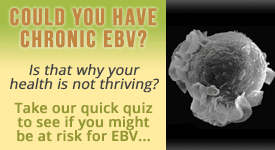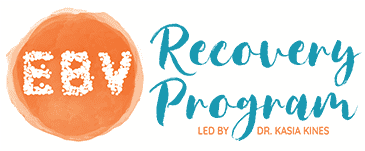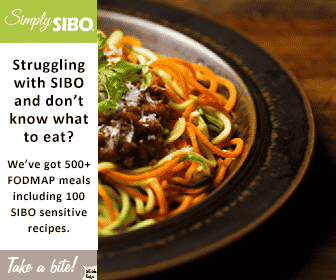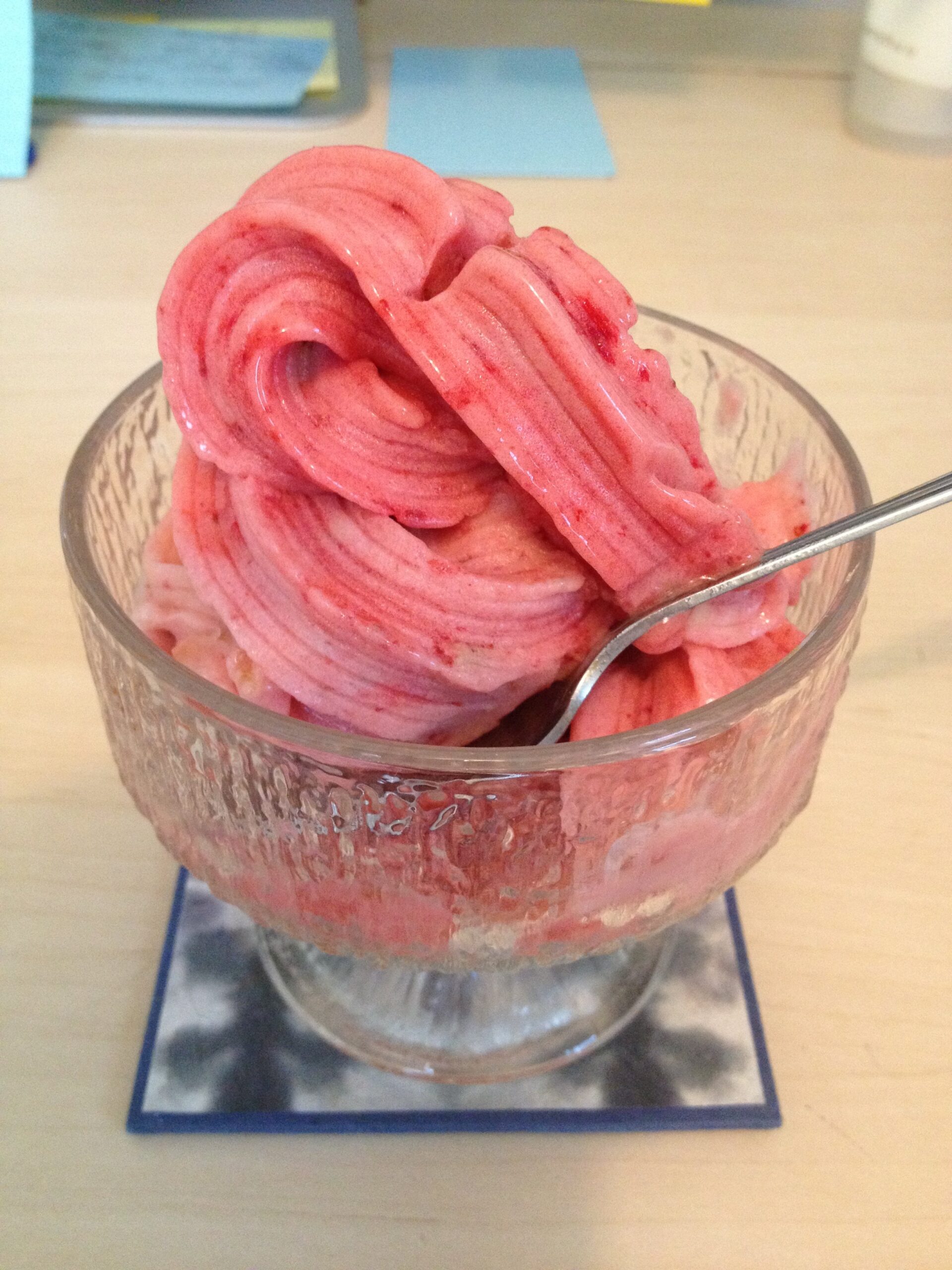Small Intestinal Bacterial Overgrowth (SIBO)
Small Intestinal Bacterial Overgrowth or SIBO deserves a separate page because this is a condition that is often misdiagnosed, missed, or only partially resolved. It is a hidden epidemic, and a lot of people need help they do not get locally where they live. That is one of the reasons my practice is fully virtual!
Recent Updates:
Is the FODMAP diet right for you? In a recent article, my friend Angela Pifer reveals the truth of Low FODMAP diet and its limitations. This is an outstanding review of existing research, showing you the limitations of this diet. I absolutely agree with Angela Pifer that the diet helps decrease symptoms related to SIBO but that this is where its role ends. It should not be applied long term and is not a sustainable long-term diet. Nor is it a solution to SIBO: SIBO is a motility disorder and that has to be addressed. Long-term low FODMAP diet creates a host of potential health issues. Learn more here.
Here is our latest video blog on SIBO and a possibly beneficial new probiotic.
Here is the blog I wrote on the Vagus Nerve Hypothesis: could a viral infection like EBV affect your vagus nerve? Could that lead to SIBO? Why do I see clients that have both conditions?
Is this you?
- Do you feel bloated or gassy after meals, especially as the day progresses?
- Do you feel distended even when drinking water and feel the best when not eating at all?
- Have you been losing weight no matter what you do?
- Do healthy foods like fruits, vegetables, or legumes make your intestinal distress even worse?
- Are potato chips some of the few items that do not make your gut feel worse?
- Are you constipated or running a diarrhea or both?
- Does fiber makes things worse instead of helping with your chronic constipation?
- Do you also have IBS?
- Do you feel there was a particular time and place (e.g. food poisoning during your last trip to Mexico or hospitalization) since when you have not been quite all right?
- Do you have restless leg syndrome and/or rosacea as well?
- Do you have redundant (aka torturous) colon or does your parent or grandparent have it?
- Have you had any surgeries around or below the abdominal area?
- Do probiotic supplementations hurt you more?
- Are you sensitive to dairy and/or gluten?
- Have you been on opiate or oral contraceptive medications?
- Do you have Hashimoto’s or hypothyroidism?
- Have you had even a slightest brain injury (falling off a horse as a child, a car accident, being hit with an object, etc)?
- (There is a longer questionnaire we ask our new clients to assess their risk of SIBO)
If you answered yes to at least 4 of these questions, you may have SIBO. And did you know that if you have IBS, you have up to 80% chance of getting SIBO?
The definition of Small Intestinal Bacterial Overgrowth (SIBO): “increase in the number and/or alteration in the type of bacteria in the upper gastrointestinal tract” (Bures et al., 2010). In plain language, your small intestine normally hosts beneficial Lactobacillus bacteria, but SIBO means that hydrogen-producing bacteria take hold and overgrow instead, sometimes accompanied with methane-producing archaea microbes, to complicate things more, with the latter consistently adding constipation.
When these microbes take hold, you will experience a lot of gut symptoms, and inflammation and gut permeability may take hold. Eventually, you may stop being able to absorb nutrients, lose weight and become malnourished.
SIBO is not a Disease – It is Never there Alone; it is not a Cause but a Result!
Small Intestinal Bacterial Overgrowth (SIBO) is not so much a disease and a cause as a syndrome of other things not being in balance and relates to gut/vagus nerve motility issues. If you look below at the protective mechanisms and then at the laundry list of medical conditions that can cause SIBO, you will appreciate how complex the case of each person can be. I have yet to work with a client that has SIBO and that is the only health problem in their life.
SIBO Awareness in Medical Practice is Growing
The biggest challenge I saw just a few years ago was that SIBO was like Celiac had been 30 years ago – you may have been misdiagnosed or wrongly diagnosed for months on end because not all doctors yet are aware of it. You may have gone from doctor to doctor and done a lot of testing, but no one can tell you what is wrong.
I am thrilled to report that this is changing. Functional clinicians are learning about it. Global Summits on SIBO have been filmed reaching thousands of people. Clients now are becoming very educated and demand specific help from their doctors. We have had annual SIBO Symposiums in the last few years with experts from US and abroad. Low FODMAP diet is becoming a household name among gut clients. You would hope we have arrived!
Not So Fast! We still Have Work to Do!
SIBO is not a one time operation: you broke your leg, you get to ER, they put it back together, put your leg in a cast and then you recover letting the leg heal. One time I had an amazing certified functional medical doctor (FIM certified and that takes years!) reach out to me because at the end of the day her client’s SIBO was just so overwhelming. The doctor was not sure where to go with it after all, despite all the training.
You probably have experienced it too. Clients are put on the wrong antibiotics, wrong dosage or frequency…they may not retest after that and as the client may be feeling better, they feel their job is done!!! We just fixed a broken leg! And the SIBO recurs.
Only about 1/3 of Clients Clear SIBO Completely with one Run of Antimicrobials
And even with a lot of experience, sometimes I do not know what else is behind it and once in a while a client cannot be helped. It is not a one time pass. 2/3 will need repeated therapy, depending on how high the hydrogen level is.
WHY you Have SIBO is the Most Important Question
It is challenging BUT not impossible to tackle, but it depends on the reason you have SIBO. If you have scarring and adhesions from surgeries, no matter how many times you will clear SIBO, it will return unless you address these adhesions. What if you have a redundant colon (meaning that it is unusually long). Clinicians that work with a lot of SIBO look for those clues and support you with possible solution and support for each area of the problem, e.g. visceral manipulation.
One thing I have to say is: be patient. You may need a few rounds of herbal protocols and a few re-tests before you are successful. According to Dr Siebecker, ND, who has done amazing ground work for global SIBO education and SIBO Symposiums and continues to educate us all, it may take up to 4 years to have a full success in some cases.
We do have to treat SIBO as a chronic syndrome with a high likelihood of recurrence. I think it is better to have this expectation, so you do not get disheartened if you are the majority and have to continue to work on it. But for those few clients that clear once and for all and that is it long term, I am so over the moon happy! That is a lot to celebrate. I am sorry I cannot give you better news.
Low FODAMP is not your Bible
It is coming to my attention more and more (and I agree with my dear friend and our amazing SIBOGuru Angela Pifer) that low FODMAP does one thing: helps keep fermentation symptoms down, but it does not cure or kill the SIBO.
It alarms me when people stay on it long term for various reasons as a diet to manage their IBS. Yes, that is possible, but is it possible to first address why one has IBS, for example? Working with food during SIBO needs to be completely customized and diet can and I think should be stretched as long as symptoms do not increase. This can change over time.
If you do eat more high FODMAP and of course later feel worse, do not feel you just increased your SIBO. It does not seem to work this way. So perhaps that is good news to you!
Post-SIBO Work as as Important as During-SIBO Work
When you are able to clear SIBO, you still need guidelines to not relapse, as relapse is very common and equally frustrating. Prevention of recurrence of SIBO depends on its original causes. It is as important as the treatment of it.
The worse cases are where the best we can do is manage the long term conditions behind SIBO and thus manage SIBO each time it returns. SIBO is frustrating….but patience pays off most of the time – at the end of the day, it is SO WORTH IT to eradicate it.
How you can keep away from getting SIBO?
We normally have protective mechanisms that prevent small intestine from bacterial overgrowth. Here are some:
- Gastric acid secretion
- Intestinal motility
- proper thyroid function
- Intact ileo-ceacal valve
- Immunoglobulins within intestinal secretion
- Bacteriostatic properties of pancreatic and biliary secretion
What are risk factors for Small Intestinal Bacterial Overgrowth?
- Achlorhydria (e.g. due to Gastric acid suppression medication use)
- Pancreatic exocrine insufficiency or chronic pancreatitis
- Immunodeficiency syndromes
- Anatomical abnormalities (e.g. small intestinal obstruction, small or large intestinal diverticula, fistulae, surgical blind loop, redundant or torturous colon)
- Motility disorders (e.g. scleroderma, autonomic neuropathy in diabetes mellitus, post-radiation enteropathy, small intestinal pseudo-obstruction, gastroparesis)
- Celiac disease – this is particularly true if you have Celiac, but even though you are gluten free, you fail to improve
- Crohn’s disease
- Diabetes
- Fibromyalgia
- Gastric resection
- Hypothyroidism
- Interstitial cystitis
- Irritable bowel syndrome
- Recurrent antibiotic use
- Renal failure
- Rosacea
- Restless leg syndrome
- Surgical removal of the ileoceacal valve
- There may be more causes…
Do you Test for SIBO? – Yes! Regardless where you live!
We provide breath test kits. We drop ship them to our clients all over the country! The golden standard is hydrogen breath test with lactulose substrate for 180 minutes of testing. Glucose substrate is also used but is less effective. Breath test is a non-invasive test that requires you to drink the substrate and exhale at 20-minute internals for 180 minutes to check for the presence of hydrogen and methane.
Our small intestine does not produce those gases, so if we have a positive read, it means that the substrate was consumed by the microbes, which then produce these gasses as metabolism byproduct (to be exact, hydrogen is consumed by methane producers, so they rely on hydrogen producers for existence)…. Since I am not a medical doctor, I cannot prescribe medications, but I customize herbal protocols for my clients . You may be on antibiotics already, in which case, I provide the needed support.
Do You work with SIBO? Yes
Of course! I work with SIBO a lot. I started several years ago when I was at Hopkins Integrative Center working with a lot of Dr. Gerard Mullin’s complex patients, many of them his SIBO patients. And I have not stopped since. There is great need for clinicians familiar with SIBO, although in the most recent years, and with the number of annual SIBO Symposiums clinicians are now better prepared and more educated with SIBO then when I started. It is becoming such an epidemic!
It seems that our intestinal track is taking a beating from stress, lifestyle, and poor food choices, especially changes in microbiome, and with the gut goes the immune system and health, plain and simple. Small intestine is the absorption site to most of your nutrients, so if SIBO has taken over, this can create a nasty cycle of malabsorption and malnutrition. To me SIBO epidemic reflects our times. We need support building up our gut, which means our immunity. That is where disease really starts.
How Should SIBO be treated? – it should be completely customized
I work with food and herbals. Diet is instrumental to turn SIBO symptoms down, but diet alone does not cause SIBO nor will diet alone not eradicate it, as i mentioned above. Remember, you have an active overgrowth that is preventing your small intestines from absorbing most of your nutrients, adding inflammation and potential leaky gut to your plate.
You will still need a treatment plan along with a dietary plan. Low FODMAP is the most successful type of protocol for SIBO although some people will follow other approaches. I find that people’s reactivity to food varies substantially even within the “allowed” food groups and rather than limiting diet to low FODMAPS, we want to expand food choices as much as possible as long as they do not cause more symptoms. One common theme in SIBO is customization – we have to customize treatment for you.
No two SIBO clients react the same way to the same foods and the same protocols. Treatment for SIBO is also complex and it takes time and patience. Repeating breath test is needed and timing of it is very important and depends on the type of treatment you underwent.
There are specific antibiotics that are commonly used for SIBO, while many health providers may choose herbal protocols instead. Some clients do well on one or the other. Some clients do well on antibiotics initially but become reactive later. Some clients cannot tolerate herbs. There is no one way that works for everyone. Dr Gerard Mullin was involved in a study suggesting that herbs are at least as effective as antibiotics (Chedid et al., 2014).
While according to studies, only one in every 800 or so participants in research had to stop Xifaxan due to side effects, I have seen more cases of reactivity than that. At the end of the day, it really depends on one’s individual tolerance. Both have advocacy, benefits and disadvantages. SIBO prognosis is usually serious, and it has a high risk of recurrence – I have to honestly warn you about that. Recovery is typically a longer process, as the underlying causes of SIBO have to be addressed.
Here is a video blog I recorded on the FDA approval of Xifaxan – Xifaxan, IBS and SIBO from my video blog 2 years ago. We were seeing a lot of ads on TV for Xifaxan.
Simply SIBO – Recipe Manager and Forum
SIBO, IBS, IBD, or Celiac? Quiet your gut with our quick and tasty low fermentable FODMAP recipes, and cooking videos in an easy to navigate recipe manager! Check out Simply SIBO!
Bures, J., Cyrany, J., Kohoutova, D., Forstl, M., Rejchrt, S., Kvetina, J., . . . Kopacova, M. (2010). Small intestinal bacterial overgrowth syndrome. World J Gastroenterol, 16(24), 2978-2990.
Chedid, V., Dhalla, S., Clarke, J. O., Roland, B. C., Dunbar, K. B., Koh, J., . . . Mullin, G. E. (2014). Herbal therapy is equivalent to rifaximin for the treatment of small intestinal bacterial overgrowth. Glob Adv Health Med, 3(3), 16-24. doi: 10.7453/gahmj.2014.019
Pimentel M. A New IBS Solution. Sherman Oaks, Calif.: Health Point Press; 2006.
Dr. Kasia Kines, Nutritionist, CEO and founder of EBV Educational Institute
Virtual clinic serving the US and globally
[email protected]
If you want to transform your life, if you want health and wellness, if you want peace of mind, there isn’t a better investment than working with Kasia.~ Beth

















